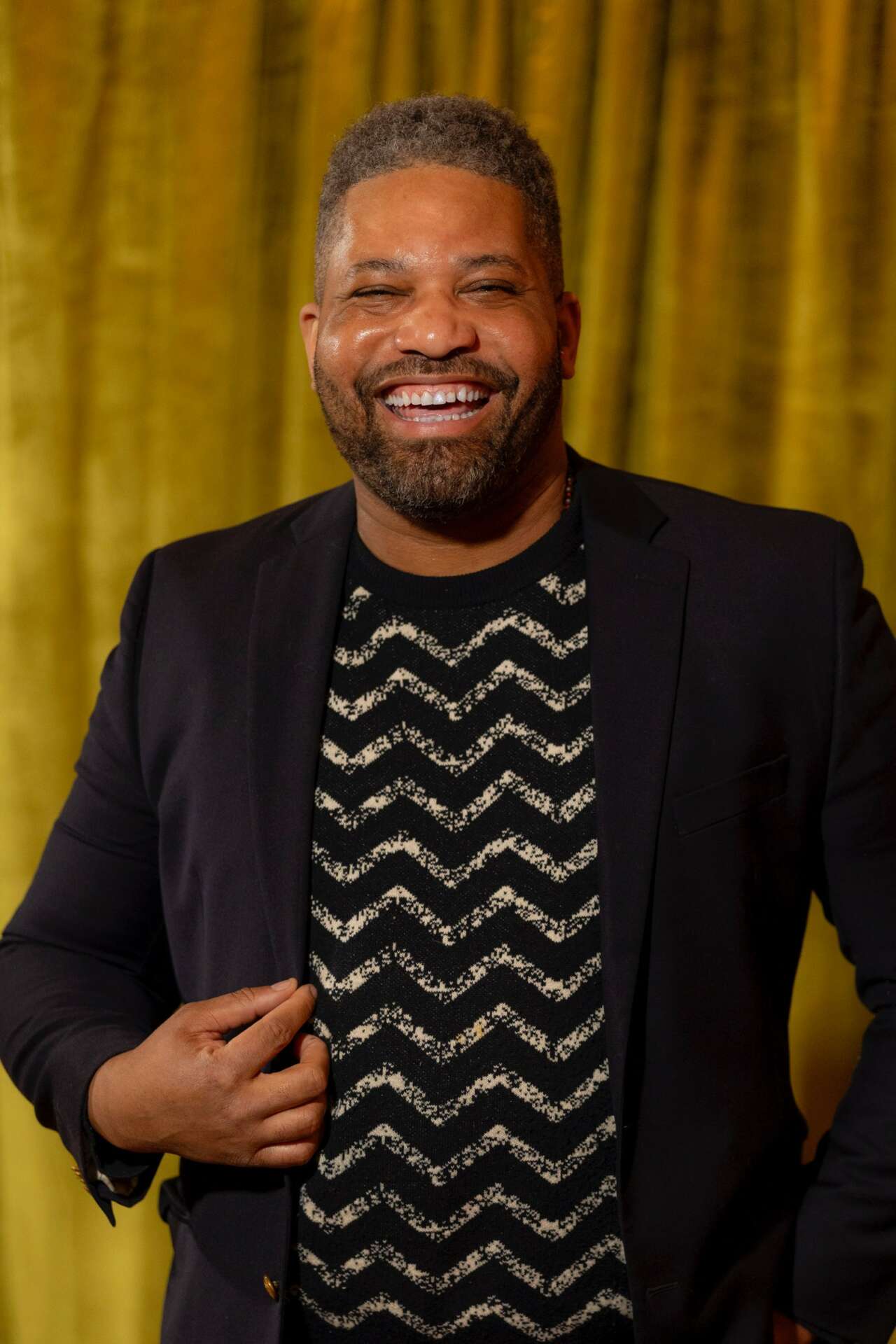We recently connected with Toure Folkes and have shared our conversation below.
Hi Toure, thanks for joining us today. Coming up with the idea is so exciting, but then comes the hard part – executing. Too often the media ignores the execution part and goes from idea to success, skipping over the nitty, gritty details of executing in the early days. We think that’s a disservice both to the entrepreneurs who built something amazing as well as the public who isn’t getting a realistic picture of what it takes to succeed. So, we’d really appreciate if you could open up about your execution story – how did you go from idea to execution?
I have been a hospitality professional for almost eighteen years, stumbling into industry out of necessity and falling in love with it along the way. Throughout my career, I have always been aware of the lack of diversity endemic to the industry. Restaurant workers of color experience poverty at nearly twice the rate of their white counterparts (Shierholz 2014). 2/3 of hospitality workers earn less than a living wage. Workers of color earn 56% less lower earnings than equally qualified White counterparts.
When I arrived in New Orleans, the stark contrast of the lack of equity in spaces was that much more apparent and I decided that I wanted to work towards changing it. I volunteered with a few non profits in workforce development to learn more about the challenges entry level hospitality workers face. Concurrently, I was working at some of the top hotels, bars and restaurants throughout the city and became more in tune to their culture and practices.
I had built a relationship with a local non profit called Liberty’s Kitchen, where I helped them raise 20k, working with the top chefs in the city including Martha Wiggins and Alon Shaya. With them as a fiscal sponsor, I applied for a grant with Tales of the Cocktail to create the pilot of a twelve week training program that would become Turning Tables. Our foundational mission and vision was to create a training program for under -represented and marginalized Black and Brown individuals within the city, providing mentorship, hands-on training and access to resources within a community of support that would help them thrive in the industry.
Bear in mind that we were putting this program together prior to America’s racial reckoning after the protests in response to the murder of Breonna Taylor and George Floyd. Racial equity was not at the top of mind for most people in the industry but I knew that could happen anywhere, New Orleans and that we could set the bar for the rest of the country. In order for the program to be a success, It was crucial to gain the support of hospitality professionals (mentorship), establishments (training spaces & resources) and spirits brands (product).
I went door to door like a Jehovah’s Witness, preaching the gospel of equity in the industry and once we enlisted enough interested parties, we applied and were successful in getting a grant for $25K. Our first year was a huge success. On the tail end we were able to successfully place seven students at bars and restaurants throughout the city. Little did I know that that was just the beginning.
We now have 41/2 years’ proof of concept for our bar training program (five cohorts), including outcome data for our participants’ success upon graduation. The highlights of these data are:
– 100% employment placement rate for our graduates
– about 50% of graduates have been promoted to leadership positions in their first year after graduation
– approximately 30% of graduates have been promoted to management positions in their first year after graduation
Many graduates have taken positions in top bars and restaurants in the city – including national award-winning establishments.
In a short period of time Turning Tables has been able to create a big impact both locally and nationally. The biggest victory of all is being a part of a larger community that I never had when I entered the industry. I am beginning to see the reimagining of the industry that I always wanted to see and believe it or not, we are just getting started.
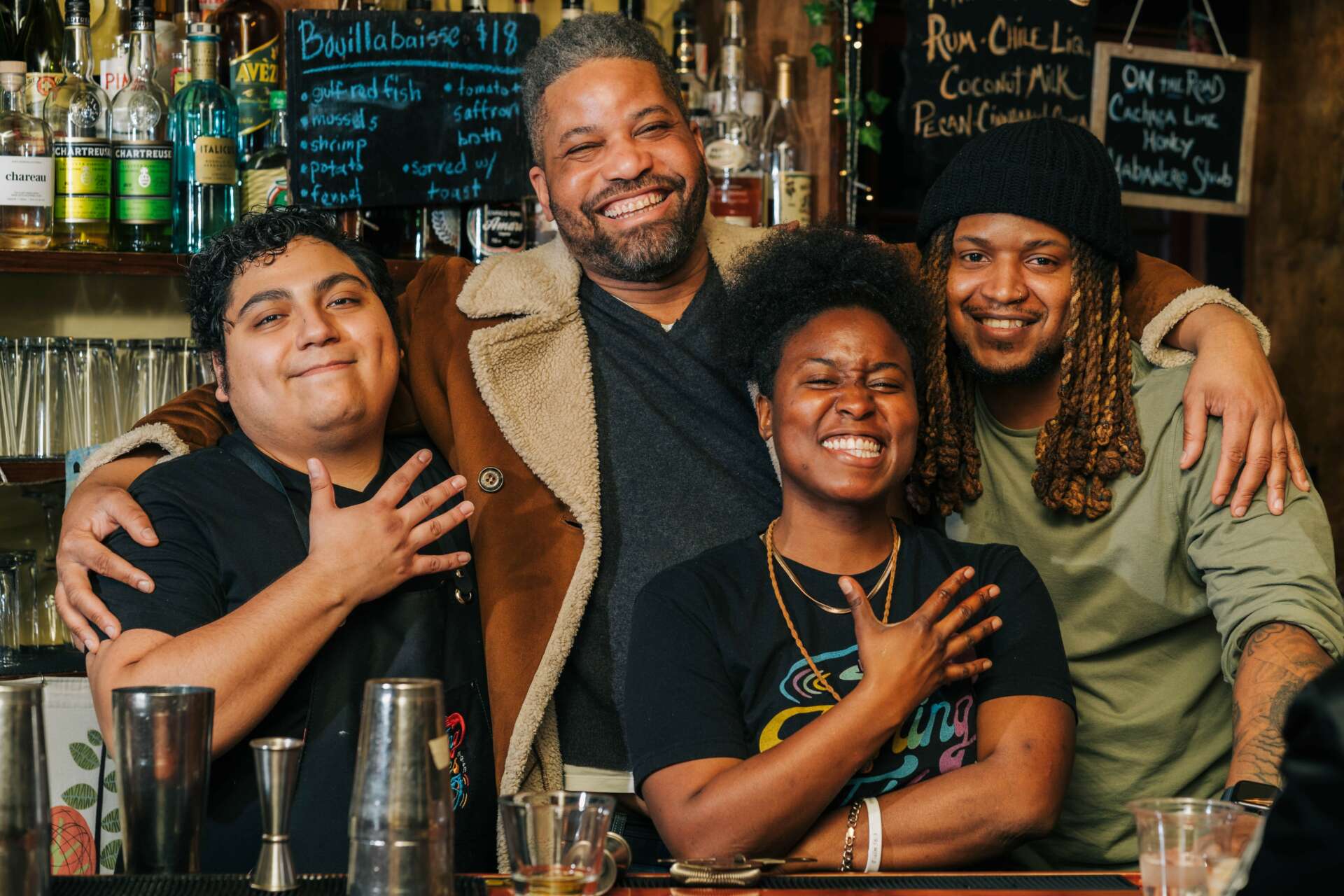

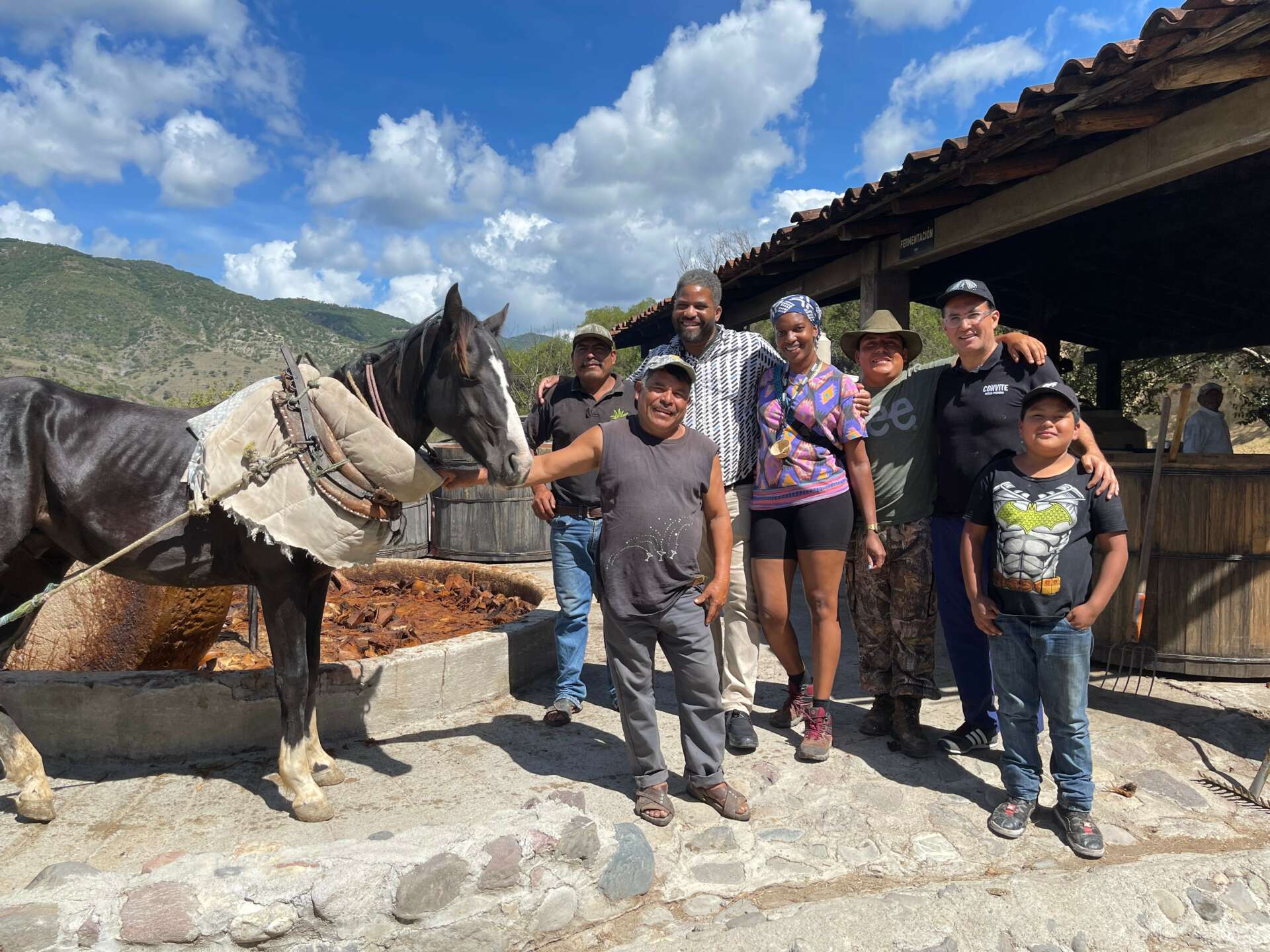
As always, we appreciate you sharing your insights and we’ve got a few more questions for you, but before we get to all of that can you take a minute to introduce yourself and give our readers some of your back background and context?
My journey in the hospitality industry started in New York City as a cocktail renaissance was happening with the emergence of bars like Milk & Honey, PDT and Employees Only, which all did their part in creating the spaces you see now with the archetype mixologist and cocktail culture evidenced now globally. Looking at the White men with suspenders and Tom Selleck mustaches, I never envisioned a place for me in it, largely because I was seldom given the opportunity in the early part of my career. I watched as my counterparts were elevated into positions despite me having the same acumen and skillset.
Frustration bubbled up as I navigated through glaring inequities in the industry. I took the first step in changing my narrative by looking for a restaurant family where I felt supported and could see the potential within myself to move into other positions and feel like I had equity amongst my peers. I quickly found that at Jeffrey’s Grocery, with a restauranter named Gabe Stulman that would change my trajectory forever. The hospitality industry became more than an end to a means. It became my community and more importantly a community where I could create impact.
Running parallel to my initial years in hospitality, I worked with a few different local non profits as a mentor and storyteller through my lens. The impact of my experiences would bring the values of systems change front and center as I was envisioning Turning Tables.
Turning tables advocates for equity in the hospitality industry by providing mentorship, educational resources, and access to real opportunity within a system of support for Black and Brown individuals looking to thrive within the hospitality industry.
We are actively reshaping the face of hospitality by cultivating leadership and pioneering a model that ensures equitable access to career pathways. It’s not just about addressing the symptoms; it’s about transforming the industry at its core.
Turning Tables is the only organization in New Orleans—a city with a rich history surrounding hospitality and spirits—that offers what we do. Our students have access to local and national industry leaders, who collaborate with us to develop a unique curriculum that dives deep into the history of race in the beverage industry. Students gain the tools to pursue a wide range of pathways in food and beverage, including brewing, distilling, management, entrepreneurship, marketing, and brand ambassadorship.
Our work is also distinguished by our consulting services, extensive partnership network, and deep level of engagement in city-wide equity work. In our pursuit of equity, we actively seek partnerships with employers, brands, and individuals who share our vision. We understand that pervasive inequity requires a collective effort to challenge and overcome. By collaborating with like-minded entities, we aim to identify and address the systemic issues embedded in the industry.
Turning Tables doesn’t shy away from uncomfortable conversations. We work alongside our partners to recognize and confront the ways in which racism, discrimination, and implicit bias have permeated their establishments. Through a collaborative process, we assist in implementing new policies and practices that eliminate these harmful elements, fostering an environment where everyone can thrive.
It’s not just a business; it’s a personal mission that was born from lived experiences and a desire to make a meaningful impact.
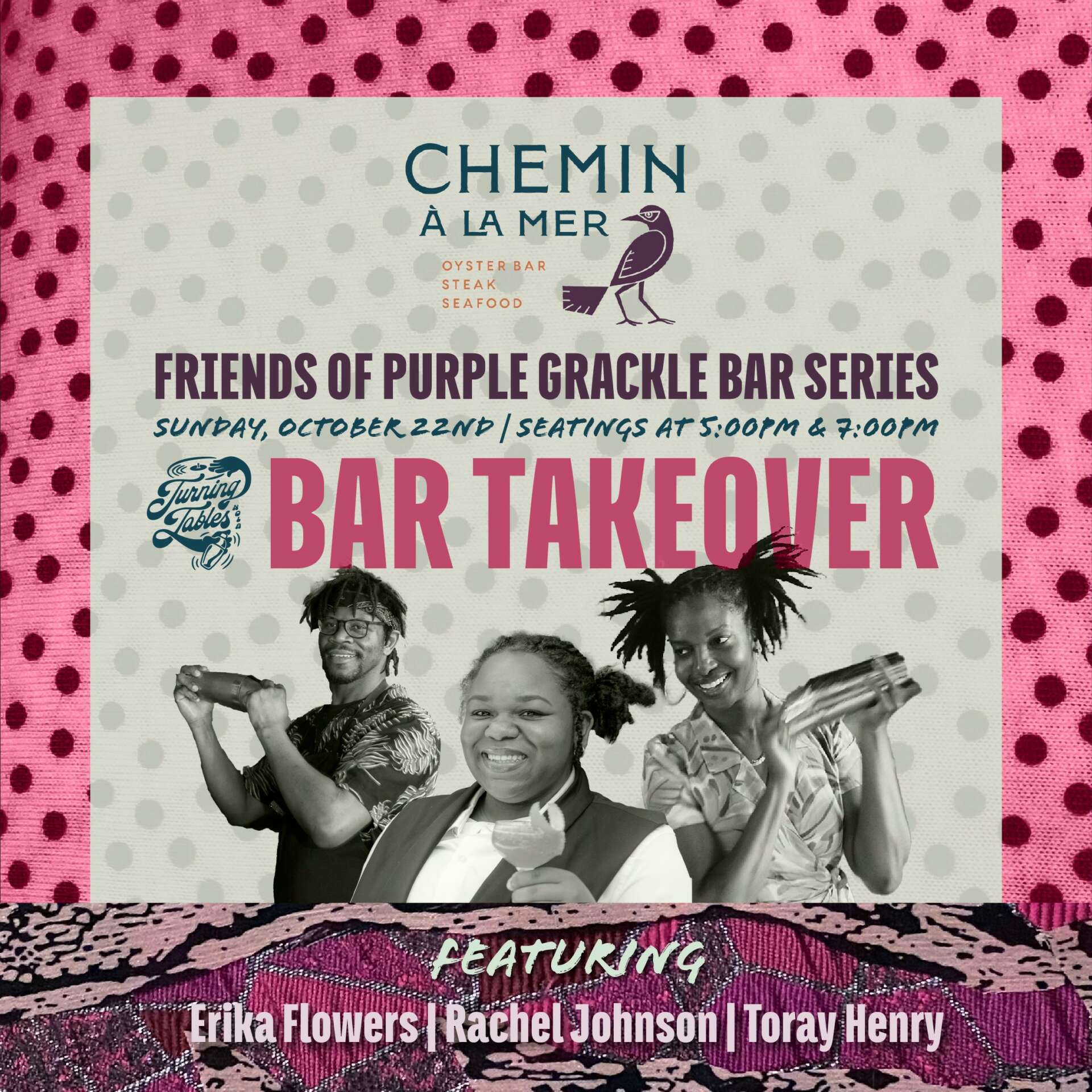

We’d love to hear a story of resilience from your journey.
After our first year, Turning Tables was dropped by our fiscal sponsor and partner in the midst of the pandemic. They were fighting to keep the lights on and so secondary program only detract from their mission and vision. Suddenly, our future was uncertain, and it felt like we were back to square one. The weight of that setback was immense. I had poured my heart and soul into this project, believing it was a game-changer for the industry. To see it potentially crumble was heart-wrenching. Every sacrifice I made, every late night, every ounce of energy I invested felt like it was in vain. I had found my purpose, and now it seemed to be slipping away.
But, as they say, when one door closes, another opens. I went back to the drawing board, seeking advice and support from our volunteers and sponsors. That’s when one of our hospitality partners stepped up. He shared how much his involvement with Turning Tables had impacted him. Not only did he generously contribute to our next chapter, but he also expressed unwavering faith in me as the leader to steer the ship. That vote of confidence was the window of opportunity I needed, and I’ve been pushing forward ever since.
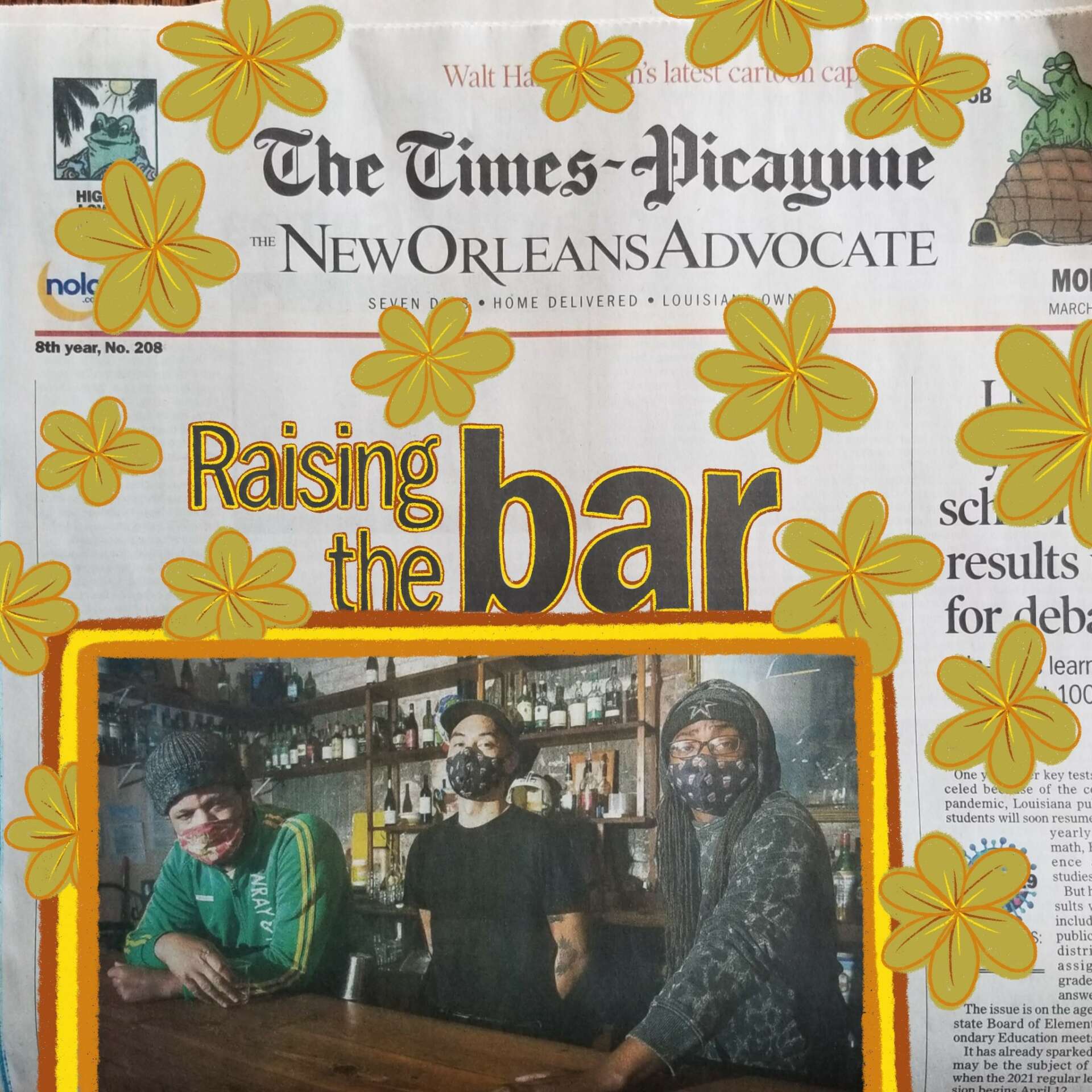
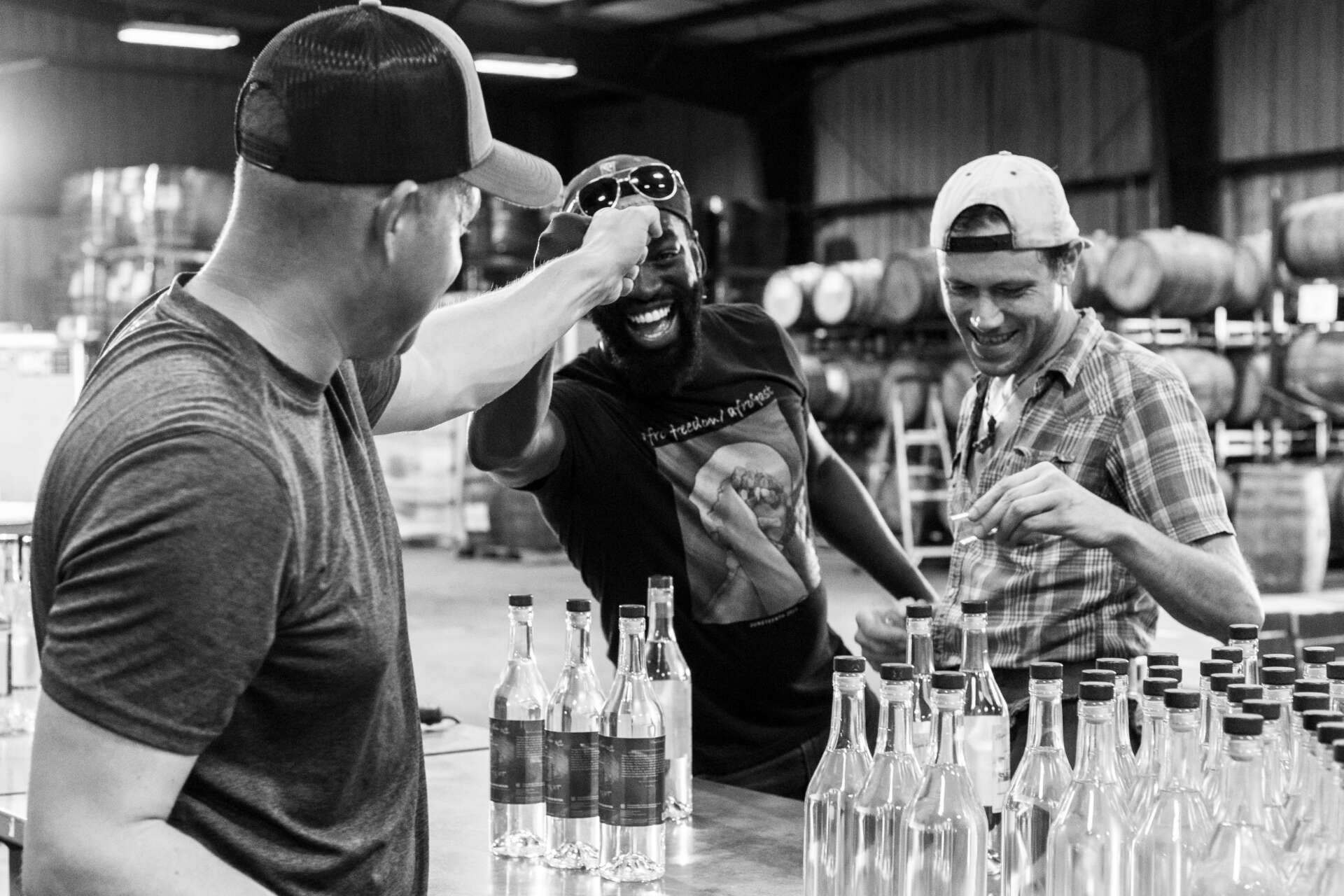
Any insights you can share with us about how you built up your social media presence?
I have grown up influenced by the art on my walls and consider myself an artist at my core. When I thought about creating our marketing strategy I knew that I wanted to tap into us being a revolutionary concept. In our first year, we were emulating Emory Douglas and the Black Panther newspapers that he brought to the community to amplify their message. The second year was a dark time, so we wanted to bring a little brightness into the mix, and Kehinde Wiley shows everyday people in a dignified way.
Regardless of the artist we have created a very clear identity for ourselves that is cohesive and people know right away that it’s Turning Tables. I wanted to express gratitude to the community of support that makes it all possible. I think most nonprofit accounts tend to be stale in their messaging and you have no idea about who you are supporting.
We want to highlight every student that comes through Turning Tables and show their journey so that people are familiar with them as they enter the industry. It’s nice when the students are recognised as a person from Turning Tables, It makes them feel a bit more seen, and our audience can go on the journey with them. I think that how Turning Tables communicates our story will evolve over time. Down the line it will be interesting to see how the alumni want to envision themselves in the narrative they have helped to create.
Contact Info:
- Website: www.turningtablesnola.org
- Instagram: https://www.instagram.com/turningtablesnola/
- Facebook: https://www.facebook.com/turningtablesnola/
- Linkedin: https://www.linkedin.com/company/turning-tables-nola/?viewAsMember=true
Image Credits
© Carlos M Silva © Meg Becker


